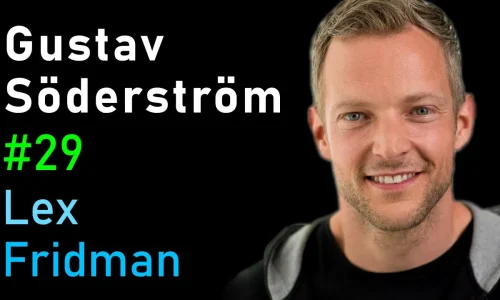See all Lex Fridman transcripts on Youtube

Gustav Soderstrom: Spotify | Lex Fridman Podcast #29
1 hours 47 minutes 3 seconds
🇬🇧 English

Omnivision Solutions Ltd
- Getting Started
- Create Transcript
- Pricing
- FAQs
- Recent Transcriptions
- Roadmap

1 hours 47 minutes 3 seconds
🇬🇧 English

Omnivision Solutions Ltd